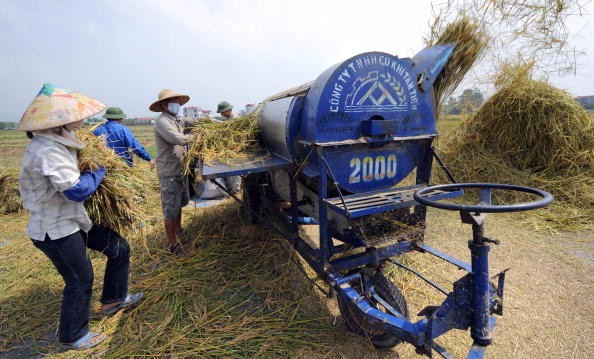According to a recent report, hybrid rice strains could help improve rice production and help low-income farmers.
Although the process could be difficult, new research said that it managed to succeed in propagating the hybrid strain as clones.
Rice serves as a global food. It is an essential part of daily living in many countries. Therefore, many types of research have been developed to improve rice performance and production.
Farmers also faced many challenges in rice yields.
In a recent report, NPR.org explained that farmers encountered more problems: shortages in irrigation water supply, human-caused climate change, natural disasters, and shipping delays.

Ultimatelty, farmers' challenges could result in low production, affecting the supply chain, or making prices soar.
Commercial Hybrid Strains
As a result, research has been significant in addressing the problems in global supplies.
Commercial hybrid strains and rice production could produce more strains that are disease resistant and affordable to farmers.
The study was published in the Nature Communications journal.
The report from the Phys.org website showed that researchers discovered to propagate the hybrid rice strain.
It would be as a clone through seeds, revealing a 95 percent efficiency. In addition, the report explained that it could potentially lower the cost of hybrid seed.
The hybrid rice seed could boost rice production, helping feed billions of people globally.
According to the report on Phys.org, researcher Gurdev Khush explained that rice hybrids are yet to reach farmers globally.
Khush is also an adjunct professor emeritus at the University of California -Davis.
The report said that the researchers looked into how to clone hybrid rice strains, which could have the same efficiency and production.
With continuous efforts and commitment to the project, researchers Venkatesan Sundaresan and Imtiyaz Khanday achieved the difficulty of apomixis in rice.
In 2019, they reached 30% of rice seeds as clones.
Both are from the Departments of Plant Biology and Plant Sciences - at the University of California (Davis).
The report explained that the apomixis process in rice plants would be helpful to become accessible worldwide, especially to farmers.
However, the process was not easy.
The process could unveil commercial hybrid plants that could thrive in extreme conditions.
In addition, the seeds could still grow. The report also added that the process and results apply to different crops, which could supply and meet global needs.
Global food supply
On the other hand, a recent Reuters report last year explained that the global supply of rice could be affected due to extreme weather events affecting exporters in Asia.
As a result, low yields could result in rice prices surging.
Meanwhile, the research in Nature Communications added that researchers achieved 95% in the efficiency of clones for hybrid rice strain.
The report said clonal efficiency could help the increasing need for rice globally due to the population boom.
Because rice is a global staple and the population is growing, extreme weather events could affect rice yields, affecting countries and economies.
For more similar, don't forget to follow Nature World News.
© 2026 NatureWorldNews.com All rights reserved. Do not reproduce without permission.





